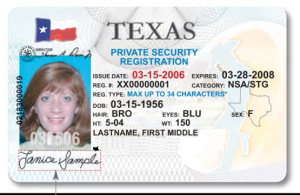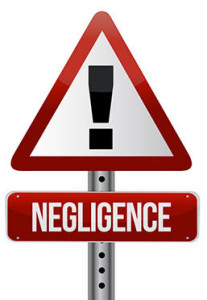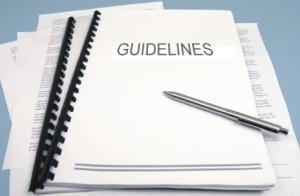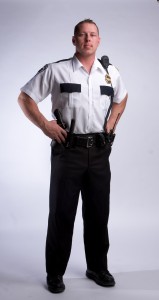Category: DPS-RSD Policies
Security Guard Training Schools Exposed
Aug
31
2016

Texas Certified Training Academy is encouraging the public to report lack of training at schools for security officers in Texas
Too often you hear of security officers in the news committing senseless acts and making poor decisions that could have been avoided. Immediately following such an occurrence, authorities and media outlets covering these incidents inquire about what security guard training the officer received, if any at all, and which school conducted the instruction.
The average client or citizen would be amazed of how little security officers are trained; then, to have training academies or Instructors shorten or cut what little is left is unbelievable.
Glenn Jones – Security expert, says “All roads lead back to the training academies; they are the ones certified by the state and charged with the responsibility of ensuring the basic standards are being met.
They are also the ones being paid by their students or security companies to properly train their students. If Instructors don’t provide at least the minimum required by the state, the officer, employer, and their clients are let down and exposed to liability – a responsibly we take very seriously at TCTA.”
Security Guard Training – Investigation of Guard’s Training Occurs After Garage Shooting
Many training academies and their Instructors have been caught cutting corners, shaving off major time from required classes, not following the state’s guidelines, and even graduating students regardless if they did not qualify at the range or pass the written exam.
As a matter of fact, TCTA has reported two schools and three Instructors for engaging in these acts which led to DPS investigations.
 Why is this even occurring – who knows?
Why is this even occurring – who knows?
Maybe Instructors are lazy and lack proper training themselves or they’re trying to win more business by giving deals and so-called hook-ups; whatever the case, it has to be stopped and now!
The results of improperly vetted Instructors at security guard training academies –
When Instructors are not vetted too well from DPS or their own employer, you often find some that turn a program of education and training into a “certificate mill” for a fast buck.
They often  cut corners because they lack the real knowledge of being a teacher, or no longer care about what they are doing and see each student as a dollar sign and not someone who needs valuable training.
cut corners because they lack the real knowledge of being a teacher, or no longer care about what they are doing and see each student as a dollar sign and not someone who needs valuable training.
Some training academies outright give the answers to the state exam while others simply ignore shooting qualifications, allowing students to pass even if they fail this portion of training… That’s absurd!
If a student can’t pass the range portion of the course, there should be no way on earth that student receives a level-3 certification.
When Instructors sign a certificate signifying that student passed and is safe to act in the capacity of an armed security officer, they have just falsified a state document and could face suspension and arrest.
So what’s needed?
Crime is increasing daily and as a result, security companies are receiving more and more calls requiring coverage. Why would a potential client hire a security provider whose guard force lacks training and could potentially be negligent to that client?
It only makes sense to have qualified officers who can cover accounts without jeopardizing their lives or the lives of others.
Any security guard training academy in Texas that passes their students just because they attended their school should be closed immediately. This industry cannot afford to have that level of incompetence.
How can improvements be made to security guard training academies in Texas
- DPS needs to thoroughly vet security training Instructors and put them through a training program as they do with LTC Instructors. “Just because a person was a prior police officer or ex-military does not automatically mean that person is a great teacher or runs a proper program or even cares about their job, so they need to be vetted and inspected more” says Glenn Jones.
- Raise the guard training program standards and required hours – some manuals were last updated in 1999 (i.e. the Level-4 manual as an example).
- DPS-RSD needs to develop with the aid of security experts (not civilians and troopers) but security experts a standard class with all the materials so each school is teaching the same exact class in the same manner without deviations.
- DPS-RSD needs to visit and sit through more training academies instead of focusing on the guard companies.
Texas Certified Training Academy takes pride in providing education to security officers throughout the state of Texas. We refuse to stand by and let a few “bad apples” hurt the guard industry by being lackadaisical.
Trying to win more business by letting students pass even when they fail is doing a disservice to the guards, the general public, and security clients. There’s just no way around this.
How can the public ensure qualified Instructors are at security guard training schools?
 We are asking for help with stopping this fiasco. If you or someone you know has experienced an academy that is cutting corners by shorting hours required by the state of Texas, giving away answers to the state exam, or passing students that clearly fail shooting requirements, please contact Texas Department of Public Safety and report this immediately.
We are asking for help with stopping this fiasco. If you or someone you know has experienced an academy that is cutting corners by shorting hours required by the state of Texas, giving away answers to the state exam, or passing students that clearly fail shooting requirements, please contact Texas Department of Public Safety and report this immediately.
Whether it’s License to carry ltc classes, non-commission or commission classes, or security management courses, Instructors are (at minimum) expected to teach the basic guidelines given by the state.
If you are a security professional or considering pursuing a career in the field, contact Texas Certified Training Academy; the Instructors will provide hands-on experience, in-depth knowledge, and won’t cut corners.
For more information about training for security guards in Austin, Texas, click here
Posted in Current Events, DPS-RSD Policies, Training Tagged with: Level 2 Training in Texas, Level 3 Training in Austin Texas, Level 4 Training in Austin Texas, Security Training in Austin. Austin Training Academies, Security Training Schools in Texas, Training for Security Guards in Austin Texas
Criminals working security guard jobs
Jun
01
2015

Have you ever wondered just how thorough of a background check is conducted of security guards? Did you ever think just maybe the guard on your property may have a criminal background? Is it possible the state of Texas is allowing and licensing convicted criminals to work in the security industry? Are criminals working security guard jobs?
Short answer: Yes… and possibly working on your property right now!
 DPS-RSD will allow and license convicted criminals and non-Us citizens to work security. It is true. If you are a convicted felon and your crime is over ten years, the state of Texas will license you with no problem. If you have a misdemeanor conviction which is over five years, the state of Texas will license you to work security and safeguard people and properties – jaw dropping huh…
DPS-RSD will allow and license convicted criminals and non-Us citizens to work security. It is true. If you are a convicted felon and your crime is over ten years, the state of Texas will license you with no problem. If you have a misdemeanor conviction which is over five years, the state of Texas will license you to work security and safeguard people and properties – jaw dropping huh…
Criminals working in security
Security companies that claim they do background checks mostly rely on the state’s finding; they generally don’t go any further. Statistics show that repeat offenders in the U.S., commit crimes again – hence, the terminology “repeat offenders.”
Why these low standards exist in the security industry of all places is unknown; many would agree, it should not be taking place in an industry where the guards are providing services at all types of locations to include: Daycares, retirement homes, apartment complexes, banks, jewelry stores – and mostly unsupervised themselves… kind of risky right/
When a client is contracting with a security agency they assume and are told that background checks are done, and that every guard showing up on their property is “clean as a whistle;” sadly, that this is not true and a large number of guards working in the industry have criminal records.
If we want the image of security to be taken seriously and pay to increase, this has to change and the industry’s image must be cleaned up. Guard companies are aware of this, as they are employing these individuals often for low wages, therefore they want to remain silent on the issue.
Security companies hire felons
Question for Guard Companies:
What is your plan when an incident occurs which involves your employee who is a convicted felon? What will be your statement to the media or your client? Think about it for a minute: either way you answer the question regarding your knowledge of a convicted felon makes your company look bad.
Hypothetical Answer #1: “We thought he was fine because DPS does the background checks. We had no idea.” This is not a good answer, as a company is supposed to conduct their own background checks also – at least that is what most guard companies advertise on their websites and literature, to include DPS requires it. This answer makes you look negligent, untrustworthy, and as if you provide false advertising.
Hypothetical Answer #2: “Yes, we knew he was a convicted felon but DPS cleared him.” This answer is not good either, as you are admitting to placing a convicted felon on a client’s property without notifying them; your clients would have grounds for a lawsuit should an incident occur. This answer, like the prior one, makes you look negligent, incompetent, and places the clients in jeopardy, to include your company’s reputation.
While recommendations are being sent to the Board, we suggest educating the general public about the standards of this industry and how your company is different. Offer proof of drug tests and criminal backgrounds of your staff to your clients; this will drive the other guard companies hiring felons out of business. It does a client no good to show them what nice uniforms or patrol vehicles you have when a convicted felons are representing you and your clients.
Convicted felons work as security officers
Did you know?
 Ex-felons cannot possess a firearm and cannot work as a Commissioned officer or a Level-4 Bodyguard (as a Commissioned license must be possessed with the Level-4), so most remain as a non-commissioned Level-2 (unarmed guard) for that exact reason.
Ex-felons cannot possess a firearm and cannot work as a Commissioned officer or a Level-4 Bodyguard (as a Commissioned license must be possessed with the Level-4), so most remain as a non-commissioned Level-2 (unarmed guard) for that exact reason.
Ex-felons cannot take the Level-3 class for educational purposes, as they cannot not possess the firearm required to complete the course. Additionally (by state law), ex-felons cannot wear body armor; this clearly exemplifies even further why convicted criminals shouldn’t pursue this particular industry.
Security clients across the state who “assume” all their guards have a clean background would be shocked and horrified to learn they might have an ex-felon or guard with a criminal background on their property working right now. This should be addressed immediately!
Why security associations such as ASSIST, DPS, Homeland Security, the Governor’s office and the Board, have not brought this issue to the forefront remains a mystery. The security industry cries for the public’s trust and to be seen and paid as professionals, but how professional can you be with known criminals working for your company?
Hundreds of people have asked “How do we raise the pay, trust, and standards in the guard industry?” The answer (which every security company already knows), is ignored or not welcomed, is to first clean up their ranks and terminate convicted criminals, then stop hiring new ones.
Secondly, embrace training and stop running from it or just doing the minimum (this goes for the companies and the guards). Implement 100% drug tests with 100% MMPI’s across the board at all levels.
And lastly, if more security companies learned to work together, they could collectively address some issues with DPS-RSD as a large group; associations are awesome but if they have no bark or bite with the state, they are useless. When ASSIST contacts the state or DPS, they should send as much fear and have as much respect as the ACLU or the NAACP when they come knocking, but clearly they do not, which is another issue to address at a later date.
For more information about ex-felons working in the security sector, contact TCTA.
Posted in Current Events, DPS-RSD Policies Tagged with: criminals working security, criminals working security jobs, DPS security licensing, ex-felons hired as security, Guard companies employing convicted felons, security training, Texas security licensing standards
Requirements for Security Licensing in Texas
Mar
02
2015
Thinking of becoming a security officer and not sure exactly what steps are required? Would you like to know what the entire security licensing process in the state of Texas is? We’ve got you covered! Starting a new career can be challenging, so we definitely want to create an easy path to assist you along your journey.
If you are brand new to the security industry in the state of Texas, you will have to enroll in a Level-2 Non-Commission course. After completing the Level-2 Non-Commission course, you must take your course certificate of completion to your new employer, whereas your employer (security company) must sign off (authorize or sponsor) your official state paperwork and send your packet along with a fee, to the state for approval.
DPS will not process your license without a licensed security company first signing or sponsoring your packet; this is to eliminate freelancers – which is illegal. You must work for a licensed security company, and that company must process your paperwork; it is a controlled environment and process.
Texas security licensing requirements
It may take DPS a few weeks to as long as 45 days to process your paperwork and conduct a background check on you. As long as your employer has submitted the paperwork to DPS for a Non-commission license, you are allowed to work unarmed only while waiting for your license or a rejection letter. Once the license is approved by the state it will be mailed to your company (not you) and your company will then hand it over to you. 

Please note: Once you have been approved by DPS, you do not need to keep submitting additional sets of fingerprints and fingerprint fees to them for each additional license. You may elect to take the Level-3 Commission course or the Level-4 Bodyguard course, for details on those classes, click here.
Steps to obtain security license in Texas
Exactly like the Level-2, your employer must sign and sponsor your paperwork (additional fees included), then submit it to DPS for each additional license you wish to have. After passing the above named courses and submitting the proper proof of training, they will review your documents and either approve or reject it. If approved, as previously stated, those licenses will be mailed to your company to be handed over to you.
 Caution: You CANNOT work as an armed/commissioned officer or bodyguard until you have the actual state issued pocket cards in your hands. Texas Certified Training Academy will walk you through the process and go through all the forms you will need during our classes.
Caution: You CANNOT work as an armed/commissioned officer or bodyguard until you have the actual state issued pocket cards in your hands. Texas Certified Training Academy will walk you through the process and go through all the forms you will need during our classes.
To receive more information about Texas security officer training and licensing, visit TCTA.
Posted in DPS-RSD Policies Tagged with: How to get security guard license, Process for obtaining security license, Requirements for security license, Security licensing process
Level-3 Recertification Requirements – Texas
Jan
17
2015
Students often inquire about why some private security training schools offer an eight hour Level-3 recertification course while others offer a six hour course. Looking around at a few training academies in the Central Texas area, we’ve noticed the students were correct in what they saw and that wrong information was being posted or advertised for Level-3 recertification requirements.
“You have to go with what’s in black and white.” 
The official recertification course for the Level-3 license is (6) hours not (8) hours. This regulation can be found within DPS-RSD’s Administration rules and regulations, to include 1702. OCC; there are 2 parts under recertification: (8) hours only pertains to non-listed courses, (6) hours is listed specifically for the Level-3 commission class.
So, the other schools saw (8) hours at the top of the section and did not read through the full regulation, or maybe they just want to give students two more hours of training for free, who knows.
Private security training recertification
“When in doubt, check the code.”
DPS-RSD RULE §35.291 Continuing Education Courses states “six” (6), and OCC
§1702.309 states “six” (6) hours for Level-3/Level-4 recertification; you have
to read below the first line or two.
At TCTA, we won’t make you sit through two more additional hours that you are not required to – unless you want to.
When searching around for professional security training, be sure to check on the school as well as the Instructors; after all, this is your career on the line – what you learn or don’t learn can cost you tremendously.
 Lack of knowledge and incorrect training can lead to lawsuits and imprisonment… do you really have time for this? It’s best you do your part and spend a little time getting to know the institution and trainers you will acquire education from.
Lack of knowledge and incorrect training can lead to lawsuits and imprisonment… do you really have time for this? It’s best you do your part and spend a little time getting to know the institution and trainers you will acquire education from.
Posted in DPS-RSD Policies, Training Tagged with: level 3 commission recertification, level 3 commission training, level 3 recertification, level 3 recertification requirements, private security training, Security Training -Recertification, security training Texas, training for guards Texas
Does level-3 security license outrank level-2
Feb
13
2014
The security licensing process and requirements can be somewhat perplexed. If you are a security professional and would like to know if you have to renew the level-2 license if you currently hold a level-3 license, then reading this will certainly eliminate some of your confusion.
There are some unspecified and unstated guidelines regarding the Level-2 (Non-commission license) and the Level-3 (Commission license).
Many in the industry have expressed and passed on to others (from a non-official standpoint), that “once you get your Level-3 Commission license, you no longer need your Level-2 Non-commission license and you no longer need to renew it.” Some also state that “a Level-3 (Commission license) ‘outranks’ a Level-2 (Non-commission).”
Is a level-2 license required if you have a level-3 security license?
In theory, these points or arguments made by many sound reasonable and make sense. The problem is that there is NO regulation, rule, code, or law to back this claim up at all – anywhere.
We too, agree that an officer who has gone through a 40 hour Commission class surely “outranks” a Level-2 officer as far as licensing, and as such, should be able to perform both (armed & unarmed) using only the Commission license depending on what account the security company assigns the guard to.
 Again, nothing in any code or rule allows for this, so we contacted DPS and emailed the Licensing Supervisor, and after outlining the issue at hand, this was his response:
Again, nothing in any code or rule allows for this, so we contacted DPS and emailed the Licensing Supervisor, and after outlining the issue at hand, this was his response:
“Depending what assignment you will be working will be decided by the security company; however, you must be specifically licensed for that regulated duty you are performing.”– DPS Licensing Supervisor
Security licensing renewal process Texas
Anyone that has ever dealt with DPS-Private Security Bureau /Board /Commission /Project (the name keeps changing), will agree that many times you will not get a simple “yes” or “no” for whatever reason.
With the lack of clear defined regulations regarding this, we have to go on what their understanding is on the matter at hand and how DPS wants this dealt with so that we won’t be in jeopardy of being in violation and/or fined.
Reading the Licensing Supervisor’s email response, we can only understand this as if you are working in an unarmed capacity, then you should have a “Non-commissioned” license; if you are working in an armed capacity, then you should have a “Commissioned” license. There is no such thing as one license “outranking” another – to be clear here.
This is another one of those things in a long list of many areas that needs to be addressed and corrected as the industry continues to grow and question/study the regulations a lot more closely than past years.
Remember, it is not the fact you take your firearm off that makes you a Non-commission officer, it is that pocket card you carry that says so. With a Level-2 Non-commission license only being $35.00 which is good for two full years, we would just recommend keeping both your Level-2 and your Level-3 current at all times so that you can work both armed or unarmed as needed and you won’t be at risk of a ticket.
Some Officers say they will never work unarmed again, but if your company has a client that only wants unarmed guards, then you don’t have a choice if you want to work, so you might want to keep both current.
For more information about security licensing, contact TCTA.
Posted in DPS-RSD Policies, Training Tagged with: Commission license Austin, Level 2 licensing, level 3 licensing, Non-commission license Austin, security license, security recertification, security recertification process


